Looking for a Best Banks For Education Loan In India?
Great! You have reached the right place; we are here to help you.
Whether it is a dream home, a vehicle, a much needed vacation, or an unforeseen expense, more and more Indians are openly adapting to accepting financial assistance.
Millions of students aspire to kickstart their dream career with quality higher education, and finance should be the least of their worries.
With an education loan, they have a chance to pursue their dreams and make the right investments in their career path.
An educational loan is the amount of money that covers different expenses while you are pursuing a degree.
Banks have numerous schemes and programmes that help aspirants with living and travel costs, equipment and supplies, as well as vehicle costs for foreign students.
However, in most cases, banks select the institution, so one must double-check a lot of things including the education loan interest rate offered by the banks.
In this article, let’s take a look at the best banks that can help you with best education loan in India.
Best Bank for Education Loan in India (up to 75 Lakhs)
In India, many financial institutions provide education loans of up to 75 lakhs for in-country education. Open banks, private banks, and non-banking money related organisations (NBFCs) help cover educational expenses, but each comes with its own set of guidelines.
However, banks are stringent when it comes to educational loans as there are risks involved.
Therefore, parents and students should carefully analyse their options before making a decision. Here’s everything you need to know before applying for an education loan for studying in India, abroad, or for school studies.
1. HDFC Bank Education Loan

HDFC facilitates both online and offline applications for education loans.
Visit the bank with the necessary papers or follow the instructions on the website to apply online.
A savings account with HDFC and a good relationship with the bank ensures better chances of approval.
HDFC offers three types of education loans:
Loan for Indian education
Loan for foreign education
Central Government Interest Subsidy Scheme
Interest and repayment
For Indian education, the maximum loan amount is 20 lakhs with an interest rate of 9.55% - 13.25% per annum.
With a 15-year repayment tenure, these loans come with several benefits and low interest rates.
Charges and security
No collateral is required for loans up to 7.5 lakhs.
Late payment charged at 24% p.a. from EMI overdue date
Fee disbursed directly to the institution as per fee structure
Eligibility/Documents
Indian residents between the ages of 16 and 35 can apply
For full-time courses, an employed co-borrower is mandatory
Admission secured through merit or entrance test
Admission secured at top universities gets a preferential education loan rate of interest option
FEATURES
2. Axis Bank Education Loan

Axis Bank has strict guidelines and processing for loans. When it comes to education loans, there's only one scheme.
The bank only finances graduate and postgraduate education. Except for working professionals, a parent acts as a primary borrower as Axis disburses loans based on parents' profiles.
Interest and repayment
Interest rates and security provisions vary for different loan amounts
For loans up to 4 lakhs, the interest rate is 15.20% without collateral
For loans between 4 and 7.5 lakhs, the interest rate is 14.70% without collateral security
For loans above 7.5 lakhs, the interest rate is 13.70%.
The repayment tenure for full-time courses is 15 years, whereas, for working professionals, GRE based funding, and income-based funding, it's 10 years.
Charges and security
To avail of an unsecured education loan for Indian studies, there is an upper limit of 40 lakhs. However, for secured loans, there's no upper limit.
Working professionals don't need a co-applicant and can avail of unsecured loans up to 20 lakhs.
Eligibility/Documents
Students must be Indian citizens
Students with at least 50% marks in HSC or graduation are only eligible for loans
Secured admission to institutions through merit or entrance test
Confirmation letter from the institution mandatory for admission to career-oriented courses
Required documents displaying the regular income of the co-applicant (parent, guarantor, sibling)
FEATURES
3. Union Bank of India Education Loan
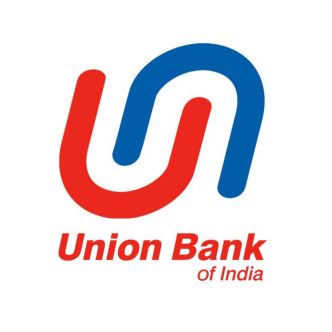
Offering low interest rates, UBI provides financial backing for education, including longer repayment period and grace period after course completion.
Interest and repayment
Although interest rates range from 8.40%-8.90%, Union Bank interest rates on education loans are flexible and subject to change.
With a repayment period of up to 15 years, loan interest repayment starts after the first disbursement.
Charges and security
The bank finances maximum loans up to INR 20 lakhs for Indian education while up to 30 lakhs for foreign education.
If the loan amount is above INR 4 lakhs, there's a 5% marginal fee for Indian courses, for courses abroad, it is 15%. However, there is no marginal fee for IIM, IIT, and ISB courses.
For loans above INR 7.5 lakhs, co-borrower security and collateral amounting to 1.33% of the loan amount needed.
Eligibility/Documents
Indian citizens up to 35 years of age are eligible for the loan
Secured admission to professional or technical courses in a reputable or recognised institution
The age for working professionals is up to 45 years
Working professionals must have an employment status of at least three years and secured admission in a reputed institution
FEATURES
4. IDBI Bank Education Loan
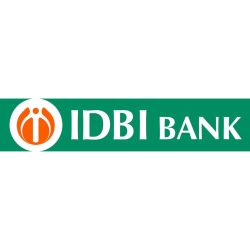
IDBI Bank provides complete financial backing for education with an array of services and easy repayment options. They approve loans up to INR 20 lakhs for Indian studies and up to 30 lakhs for foreign studies.
IDBI education loans are best for technical diploma courses, job-oriented courses, government-approved courses and AICTE, UGC, ICMR approved courses.
One can avail of loans for full-time courses, skill development courses, and non-vocational courses as well at the following interest rates
Interest and repayment
Up to Rs. 7.5 Lakhs – 8.40% and above Rs. 7.5 Lakhs – 8.90% for non-vocational courses
8.80% interest rate for all amounts for vocational and skill development courses
6.90% interest rate for all amounts for premium education/full-time courses
Charges and security
Collateral worth 1.33 times the loan amount required for loans above 7.5 lakhs
Eligibility
Requires Indian citizenship
Admission secured through management quota also eligible
Co-applicant with employment and repayment capacity for UG courses is required
FEATURES
5. Avanse Education Loan
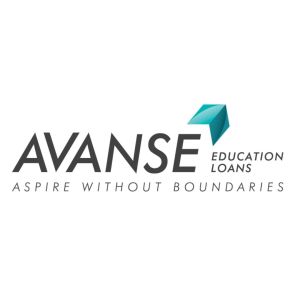
Avanse is an RBI-regulated NBFC that offers education loans starting from as low as INR 50,000 for studies in India.
People can apply for all types of education loans at Avanse with services like doorstep service, fast processing, and 100% financial backing.
It has collaborations with over 400 institutions across the world.
It makes education affordable for students from all walks of life. The loan amount varies for Indian education, foreign education, vocational courses, school studies, and e-learning.
Interest and repayment
With a 10 year repayment period and base interest rates of 11.5%, there is no cap on loan amounts from Avanse.
The minimum loan amount is INR 1 lakh. One can avail of need-based loans for studies with no upper limit.
Maximum interest rate up to 18%
Although NBFCs like Avanse disburse loans to people with below-average credit scores, the interest rates are higher
Charges and security
Need for security or collateral depends on the loan amount and creditworthiness of the borrower
There are no marginal fees
Eligibility/Documents
Requires Indian citizenship and must be above 18 years of age
Co-applicant is mandatory with an income source
Secured admission to a reputable college
Other details
Expenses covered include 100% tuition fee, refundable deposit, caution money, building fund, other institution bills not exceeding 10% of tuition fees, 75% of living expenses not exceeding 20% of total tuition fee covering book, computer costs, travel expenses up to INR 75,000 for abroad studies.
FEATURES
Best Banks for Education Loan for Foreign Studies(up to 75 Lakhs)
Every year thousands of students dream of securing admission to foreign institutions. Foreign education ensures better chances of a high profile job and a secured future. Nevertheless, it is not possible for everyone to fund their education in foreign countries.\
Besides tuition fees, there are other expenses from living costs and travel to study essentials like books, PC, extra-curricular membership, exam fees, and more. Therefore, to fund foreign education for Indian students, private and public banks, and NBFCs in India launched several global education schemes
Students can apply for this type of loan to buy some books, tuition fees and even other related costs like housing, food etc. It is necessary to take out a substantial loan when one opts for a full-time course, especially in foreign countries.
Many lending institutions offer student loan in India with a host of benefits. Such monetary assistance saves the aspirant from borrowing from individuals or other financial firms. We have mentioned the best banks to avail foreign education loans and other details so aspirants can make an informed decision.
6. State Bank of India Education Loan
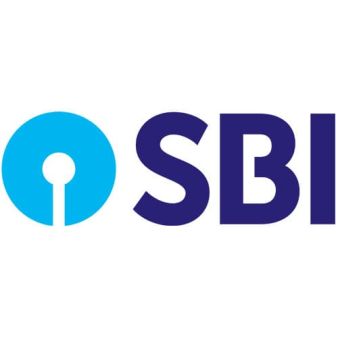
State Bank of India streamlined the process of education loans disbursement over the years.
Irrespective of their background, SBI makes education affordable for students who have a passion for their dreams but require funding.
The bank finances foreign education for loan amounts as high as INR 1.5 crores. SBI launched a global education funding scheme - SBI Global Ed-Vantage - solely for foreign studies.
With this initiative, students can opt for full-time courses in foreign colleges and universities.
Courses
Here's a breakdown of courses covered in SBI Global Ed-Vantage:
Professional/Technical job oriented graduation and post-graduation courses and diploma courses like MS, MBA, MCA in reputable colleges
Courses like Chartered Institute of Management Accountants (CIMA), London and Certified Public Accountant (CPA), USA are also eligible for education loans under SBI Global Ed-Vantage.
Interest and repayment
With effective interest rates starting at 9.30%, students can avail minimum loan amount of INR 20 lakhs and maximum upto INR 1.5 crores
The repayment tenure is up to 15 years that starts 6 months after the course completion. Interest during the moratorium or repayment period adds to the principal amount.
Charges and security
Processing fee of INR 10,000.
For SBI Global Ed-Vantage, tangible security from co-applicants or third party guarantors is required
Eligibility/Documents
Applicant must have Indian citizenship and be above 18 years of age
Academic records, entrance exam marksheets, and semester wise marksheets (for PG courses) are mandatory
Students must enrol in UG/PG/PHD in foreign institutions in the UK, USA, Australia, Canada, Europe, Singapore, New Zealand, Japan, and Hong Kong.
Identity proof (Aadhar/PAN/driver's licence/voter's ID) and residential proof (utility bills, electricity bills, phone bills, gas bills, etc.), and passport is required
Applicant must also submit a detailed fee structure and break-up of expenses from the institution
Submit the documents for the loan account statement for last year, if there are any previous loans
Co-applicant's income proof and IT return statements are necessary
FEATURES
7. Punjab National Bank Education Loan

The bank provides concessions on interest rates for people with disabilities.
Apart from that, minorities are also eligible for foreign education loans through Padho Pradesh subsidy scheme.
People with a salary or pension account with PNB have high chances of approval. But it requires a salary drawn in the account for the last five years.
Interest and repayment
Under PNB Udaan, the bank funds merit-based higher education from foreign institutions at 9.55% interest rates
There is no upper limit on loan amount, but it depends on marginal fees and repayment tenure
There is a repayment tenure of up to 15 years based on loan amounts
Charges and security
1% processing fee which is refundable after the first disbursement
No security or collateral up to INR 7.5 lakhs
For loans up to and above INR 7.5 lakhs, a parent or guardian must apply as a joint borrower with collateral
Eligibility
Both Indian citizens and OCIs/PIOs/students born to Indian parents are eligible
Secured admission to a recognised institution through merit or entrance test
FEATURES
8. ICICI Bank Education Loan
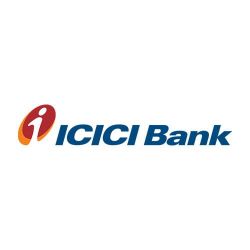
ICICI bank education loan schemes for foreign studies are flexible.
It provides secured, partially secured, and unsecured loans for international education.
Interest and repayment
Interest rates for UG courses range from 12.7- to 13. 5% while for PG courses, it is 11.7%- 12.9%.
The repayment tenure for UG courses is 8-10 years and for PG courses, it's 10-12 years
Charges and security
For loans up to 20 lakhs, there's no marginal fees
5% - 15% marginal fees for loans above 20 lakhs
0.1% processing fees
0.50% stamp duty fees for equitable mortgage
Unlike other banks, ICICI disburses collateral-free loans for bachelor's degrees upto INR 20 lakhs, and for PG courses, it's up to INR 40 lakhs.
If an applicant has security collateral equal to half the loan amount and secured admission to a listed university, it is possible to get loans up to 45 lakhs
With ample collateral security, one can avail of loans up to INR 1 crore
Eligibility/documents
The applicant must have Indian citizenship and between 18 and 35 years of age
Depending on the course applied, the student must have completed 10+2 years of school education
Academic certificates and marksheets required for loan approval
Only colleges and universities listed with ICICI are eligible for the loan. Thus, to get a foreign education loan, an applicant must secure admission to one of those institutions
Income proof of co-applicant is necessary
FEATURES
9. South Indian Bank Education Loan

South Indian Bank finances foreign education loans up to INR 1.5 crores.
The bank funds all other expenses including tuition fees, travel expenses, insurance, hostel fees, exam fees, library and lab fees, equipment costs, books, computers and other costs.
Thus it is considered as one of the best education loans in India.
Interest and repayment
Under SIB Global Education Scheme, the foreign education interest rates range from 10.05% to 10.80%.
The repayment tenure is between 7 and 15 years
Charges and security
Students must fund 15% of the loan amount as marginal fees for loan disbursement
No processing fee for loans upto INR 20 lakhs
For loans above INR 20 lakhs, INR 750 charged per lakh as processing fee
Collateral amounting to 100% loan amount and interest
Eligibility/documents
Students up to 50 years of age eligible for SIB Global Education loan
To be eligible for foreign education loan, one must be enrolled on a full-time course in UG, PG, or PhD.
Skill development courses and diplomas are also eligible if the duration is more than one year.
FEATURES
Best Bank for Education Loan in India for School studies
These banks in India also provide school education loans, irrespective of students' age. It serves as a chance to secure admission at recognised schools for parents with financial challenges
10. Bank of Baroda Education Loan

Bank of Baroda provides education loans for school education, college education, as well as post-graduate education.
Under the scheme Baroda Vidya, the bank gives education loans for Nursery to 12th Std students.
The economically backward students can benefit from this scheme to pursue education at a reputed Indian school.
Interest and repayment
The interest rate is 9.60% and 12 monthly instalments for yearly disbursement of loan
With attractive interest rates and repayment tenure of up to 15 years, BOB is popular among parents for school education.
Charges and security
No marginal fee and processing fee
1% processing fee for foreign school education, which is refundable
0.50% service charges on career development courses
No collateral or security required
Eligibility/documents
Students must hold Indian citizenship
No restriction on the age of students for the Baroda Vidya scheme, even a minor is eligible
Must be eligible for admission to a recognised institution
Loan disbursed in the name of parent, directly to the institution (year wise or termwise)
Recommendation from an existing customer helps with the chances of approval
FEATURES
Factors Affecting Approval of Educational Loan
Several other factors affect the approval of an education loan application, like assets, properties, the credibility of the applicant, co-borrowers income statement. Important criteria for approval of best educational loan in India are:
Eligibility for Course and University
Banks evaluate an application based on quality education from a reputable institution. So, before submitting a loan application, check for a professional degree course from a UGC/AICTE approved university.
Academic courses with high return potential like technical, medicine, management, engineering, etc. get quick approval. However, part-time courses or diploma courses like that of a beautician’s, computer training, etc are not eligible for an education loan.
Education expenses
Aspirants must submit fee structure and other documents detailing the break-up of all expenses. The bank only covers essential expenses necessary for course completion such as overseas travel, equipment, books, lab fees. Bus fees or tuition fees are not eligible.
CIBIL score
For banks to consider an individual a low-risk borrower, the CIBIL score acts as a measure of creditworthiness. A good CIBIL score increases an applicant's chances of loan approval. It is a 3-digit number between 300-900. Most banks approve loans easily if the score is above 750.
A CIBIL score summarises the transaction history of loans and credits. It allows the banks to review if the applicant honours their obligations responsibly. It builds reputational collateral, meaning the borrower has a chance to negotiate with the lending institution.
Parents or co-applicant with high CIBIL scores get approved, but a low CIBIL score means increased chances of rejection. But a high-interest rate, income range, and diverse bank policies for credit can help with that.
Co-borrower/guarantor and their income proof
Education loans are highly susceptible to income proof. A bank asks for documents and proof of income from the co-borrower. Both parents become co-applicants if the education aspirant is a minor. However, for a major student, one of the parents becomes a joint borrower with an income source.
For loans above 4 lakh, the bank requires a third-party guarantor who is not related to the applicant. But substantial net-worth proof can help waive this requirement.
Tangible security as collateral
Almost all banks in India provide education loans up to INR 4 lakhs without collateral. But for a loan above INR 7.5 lakhs, collateral is mandatory.
It could be tangible security like property, house, immovable property etc. or assets like LIC, shares, FD, NSC bonds, or debt bonds. It is advisable to keep photocopies of all collateral documents and mention all details.
Moratorium period or repayment holiday
A moratorium period is when the applicant does not have to start repaying the loan. They can either pay instalments after getting the job or monthly interest with a holiday on principal up to course completion.
Nevertheless, it is wise to start the loan repayment during this period to prevent the accumulation of interest. Most banks refrain from pre-payment charges during the moratorium period, but some charge fees. Applicants must submit income source and intention to pay the monthly instalments for approval.
Documents Required for Education Loan
For a hassle-free and quick loan approval, the following documents are necessary:
Carefully filled application form with all the details and passport size photos
Identity proof such as Adhaar card, voter ID card, pan card passport, driving licence
Age proof such as birth certificate, 10th marksheet
Address proof such as residential documents, utility bills, ration cards, gas bill
Confirmation of admission letter on the official letterhead of the institution
Documents like academic certificates, scholarship documents, and marksheet of the entrance tests (if any), some banks require a minimum of 50% marks in school for college education loan
A declaration letter that the applicant has not applied for an education loan from other lenders, some banks have a strict policy regarding this.
Income proof/salary slip of the co-borrower/guarantor
Benefits of Study Loan
Getting an education loan is beneficial in many ways. It lets one receive what they need to start their higher education and provides an opportunity to further themselves on a career path.
Students can apply for this type of loan to buy some books, tuition fees and even other related costs like housing, food etc.
It empowers the aspirant to get an education from recognised institutions, in India and abroad.
Some banks disburse education loans before visa application approval
Repayment tenures of up to 15 years allow the students to complete their education hassle-free
Some loans finance up to INR 1 crore covering all education and related expenses
Some banks provide concessions on interest rates to females and pre-existing customers
Tax benefits on EMI interest up to 8 years during repayment tenure
Protection of savings for parents as they don't need to liquidate their assets or monetary funds
Financial independence for the applicant and good credibility if they pay the loan in full once they start earning
Disadvantages of Education Loan
Although education loans provide any number of monetary values and help many people fulfil their dreams. However, it's important that the applicant be aware of the risks involved and carefully consider the loan amount, and double-check what kind of interest rates each bank offers.
It helps make informed decisions. We have explained below why an education loan is not a great idea for everyone.
Education loans are expensive because the borrower pays back more than the principal amount.
The borrower starts their career with debt, meaning they'll have to constantly worry about repaying. Also, they are required to earn more as compared to other students to live a decent life.
Need to declare bankruptcy becomes an escape route if one cannot repay the loan during repayment tenure. Though it means no need to pay the loan, it affects the credit score.
Paying education loans affects long-term investment and financial goals. It means either giving up one's dreams or putting in more effort to achieve them.
Negative impact on credit score if one skips monthly instalments on education loans.
It also involves risks of losing collateral or security assets
Tax Benefits on Education Loan
One can get tax benefits on an education loan during the repayment year. Section 80E of the Tax Act allows an individual to get a deduction in the interest amount paid on EMI. Note that there is no provision for deduction in the principal amount of the EMI of the education loan, only the interest.
However, there is no upper limit one can claim on deduction. Higher studies, including both vocational and full-time courses, are eligible for tax benefits. A co-applicant - be it a parent, a guardian or a spouse - with income proof can claim this benefit.
Note that a certificate is required from the bank. It shows the segregation of the principal amount and interest portion of the education loan during the financial year.
Conclusion
Education loans can be used by both first-time learners as well as those who have a degree but are seeking some specialised training at a vocational institution.
Because almost everyone needs financial assistance nowadays to get through their studies, it's great if one can take advantage of the various education loan schemes by banks in India.
A majority of banks finance loans up to 30 lakhs which means applicants are sorted when it comes to preparing themselves for employment after graduation.
However, for abroad studies, SBI is the best in terms of low interest rates, quick processing, and highest loan disbursements up to INR 1.5 crore. Following this, ICICI also comes with a host of benefits for foreign education loans up to INR 1 crore.
Nevertheless, Bank of Baroda is not great for school education loans, but also comes with the lowest education loan interest rate.
I hope you liked our article on best bank for education loan, if you have any comments or suggestions do share them in the comments below.
frequently asked question
Q1. Will I get the same amount of money on my education loan for the same level course in India and abroad?
The amount of money for educational loans differs for students studying in India and abroad. Although the course may be the same, banks offer higher amounts for those studying abroad.
This is because it covers other expenses in addition to the overall tuition fee. From travel to accommodation, and sometimes vehicles, all expenses are covered in best educational loans in India for abroad students.
Q2. Can I take an education loan against mine or my parents’ fixed deposit?
Students can get loans against the fixed deposit as collateral. If a fixed deposit is with the bank - whether applicant's or their parents' - banks disburse loans at cheaper interest rates.
In this way, the loan is secured from the bank's perspective and the borrower feels a moral responsibility to free the deposit by repaying the loan timely
Q3. For courses abroad, is the loan offered in the currency of that particular country?
Whether the applicant is pursuing education from India or abroad, the banks directly disburse loans to institutions. This reduces late fee payments and other charges associated with the conversion of currency.
Thus, most banks use forex products to make transactions for foreign education. It helps the applicant prevent hefty currency exchange charges from 2.5% to 7%.
Q4. Are NRIs eligible for education loans from banks in India?
To get an education loan from banks in India, Indian citizenship tops the eligibility criteria. Indian citizens aged between 18 and 35 who fulfil all the eligibility criteria of the banks can avail of the loan. It is because documents and collateral provided as security are only enforceable in India.
However, if NRI students have a cosigner in India, some banks offer loans to them.
Q5. Can I port my education loan to another bank with lower interest rates?
It is possible to port or transfer your education loan from one bank to another, one criterion being a non-collateral loan. One can even get lower interest rates on transfer.
The applicant mustn't ask for another disbursement from the current lender. Also, if the EMI repayment has already begun, it helps with the transfer.
Q6. Do all education loans cover 100% of the education expenses?
Banks cover 100% of education expenses under certain conditions. Applicants must provide collateral equal to at least 100% expanse of the education loan. Also, the banks fix margins of up to 15% for education in India and abroad. It depends on the loan amount as well.
Q7. What are the other expenses covered by education loans?
Several benefits come with school education loans for children in India. The loan includes other expenses such as books, lab and library fees, hostel fees, caution fees, refundable deposits, building funds, equipment, and more.
Tuition or external coaching is not eligible under an education loan. Bus fees also don't come in education loans, but banks cover vehicle costs


